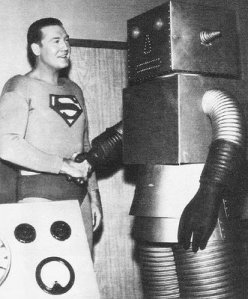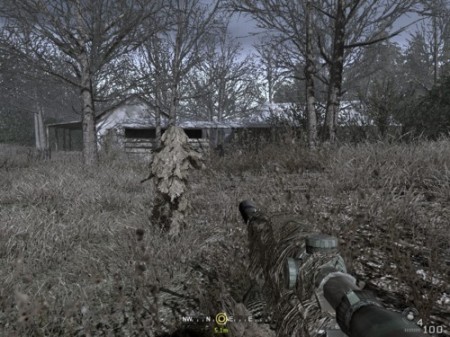Posts Tagged ‘Ubisoft’
21 September 2009

My looord! I’ve been trying demos or fiddling with web games for probably six weeks straight. Next week, I’ll likely be able to get back to being thoughtful about games. Probably I’ll try to determine whether my demo-playing experiences can be culled for any insight as to what makes a given demo great. Below, you’ll find my thoughts on the final five demos I had yet to play.
(more…)
Tags:Atari, Bethesda Game Studios, Bethesda Softworks, Columbia Pictures, Don King, Donatello, EA, EA Black Box, EA Canada, EA Sports, Electronic Arts, Fallout 3, Fight Night, Fight Night Round 4, George Foreman, George Plimpton, Katamari Damacy, Katamari Forever, Keita Takahashi, Konami, Leonardo, Michelangelo, Microsoft Game Studios, Muhammad Ali, Namco, Namco Bandai, Norman Mailer, Raphael, Red Fly Studio, Skate, Sony Computer Entertainment, Starbreeze Studios, Team17 Software, Teenage Mutant Ninja Turtles, Teenage Mutant Ninja Turtles: Turtles in Time, Teenage Mutant Ninja Turtles: Turtles in Time Re-Shelled, Terminal Reality, TMNT, Ubisoft, Ubisoft Singapore, When We Were Kings, Worms, Zen Studios
Posted in Apple iPhone, Apple iPod touch, Demonstration Nation, entertainment, gaming, Microsoft Xbox 360, Nintendo DS, Nintendo Wii, PC, Sony PlayStation 2, Sony PlayStation 3, Sony PlayStation Portable | 2 Comments »
14 September 2009

I can’t remember if there’s actually been a recent glut of demos, of if they’ve just piled up in the weeks leading to and following our recent move. There are now SEVEN for me to play through, and I’m going to jot some notes about each of them.
(more…)
Tags:1C Company, 1C: Maddox Games, Activision, Batman: Arkham Asylum, Call of Duty: World at War, Certain Affinity, Eidos Interactive, IL-2 Sturmovik: Birds of Prey, Rocksteady Studios, Treyarch, Ubisoft, Warner Bros. Interactive Entertainment
Posted in Demonstration Nation, entertainment, gaming, Microsoft Xbox 360, Nintendo Wii, PC, Sony PlayStation 3 | 2 Comments »
13 July 2009

There’s been a lot of hullabaloo lately around Ben Abraham and his Far Cry 2 permadeath experiment over at Sometimes Life Requires Consequences. I love what the guy’s doing — it’s fantastic. But what’s weird to me is the whole thing’s perceived novelty. Because I’m pretty sure we’ve all experienced the same at one time or another in our gaming lives…ever played a title in that relatively well known The Sims series, for instance?
Clint Hocking, perhaps Far Cry 2‘s most prominent designer (and a man who seems quite the humble fellow despite his notoriety), responded to the whole business by saying that Abraham’s experiment isn’t being noticed because he’s “having a more emotionally engaging narrative experience.” Nor is it “because he is playing the game in a more serious way in order to experience more serious emotions.” Rather, Hocking believes that Abraham’s experiment is significant because Abraham is “is manipulating the game itself.”
I find this notion pretty exciting for a number of reasons but, mostly, I’m fascinated because it’s a realization of the game’s meaning that’s not entirely dependent upon a fixed ruleset. All things considered, however, this isn’t exactly unique. That it’s happening in a different and traditionally somewhat rigid, authored genre is great, but the fact of the matter is these kinds of organic, player-defined objectives have been around since about 1989 at the absolute latest.
(more…)
Tags:Ben Abraham, Click Nothing, Clint Hocking, Duncan Fyfe, EA, Electronic Arts, Far Cry 2, Fullbright, Hit Self-Destruct, Maxis, Sometimes Life Requires Consequences, Steve Gaynor, Ubisoft, Ubisoft Montreal, Will Wright
Posted in entertainment, essay, gaming, Microsoft Xbox 360, PC, Sony PlayStation 3 | Leave a Comment »
16 March 2009

Doesn't this kind of remind you of a Galaga cabinet?
For a little while there, I was unashamedly stuck on playing Resistance 2. Sometime I felt like the only one. I tried justifying my love for the game more than once.
Now that I’m no longer obsessively striving to hit 10,000 kills in ranked competitive matches, I’ve achieved a bit of critical distance. And, frankly, I’d like to think I know what the game’s problem is. It’s one of critical perception.
In a post-BioShock, post-Far Cry 2, post-Call of Duty 4: Modern Warfare world, Insomniac made an arcade shooter.
(more…)
Tags:2K, 2K Games, Activision, BioShock, Call of Duty, Call of Duty 4, Call of Duty 4: Modern Warfare, Clint Hocking, Epic, Epic Games, Far Cry, Far Cry 2, Galaga, Gears of War, Gears of War 2, Infinity Ward, Insomniac, Insomniac Games, Ken Levine, Microsoft Game Studios, Midway, Namco, Resistance, Resistance 2, Ubisoft, Ubisoft Montreal
Posted in entertainment, essay, gaming, Sony PlayStation 3 | Leave a Comment »
2 March 2009

Prince of Persia was easily one of the most enigmatic games 2008. I’ve been poring over Michael Clarkson’s wonderful “Critical Thinking Compilation” at Discount Thoughts, and it seems this title has divided critics over everything from ease of play to its controversial ending. While it’s hard to imagine that I can actually add anything to the wealth of discussion this game has generated, I’d like to try connecting the two dots mentioned above.
Clarkson himself points out that the platforming in Prince of Persia “focuses on instinct and rhythm” in such a way as to “inspire a feeling of exhilarating freedom, an idea that you can go anywhere in this world.” He argues that the game’s design choices coerce players into identifying with the Prince and, honestly, it’s all quite convincing — the game mechanics clearly highlight the protagonist’s carefree attitude in a manner that overshadows difficulty. Acrobatically navigating the environment is a real joy, and part of this has to do with the unmistakable feeling of competence Prince of Persia engenders. With only a very little practice to learn the game’s cues, playing as the Prince becomes a fluid and almost effortless experience. But it’s completely dependent upon the princess.
Spoilers to follow.
(more…)
Tags:Prince of Persia, Ubisoft, Ubisoft Montreal
Posted in entertainment, essay, gaming, Microsoft Xbox 360, PC, Sony PlayStation 3, spoilers | Leave a Comment »
8 December 2008

I’ve long been a proponent of highly sylized video games. This probably has much to do with the fact that I cut my teeth during the NES era. After all, visible pixels don’t exactly lend themselves to realism. But now that the Microsoft Xbox 360 and Sony PlayStation 3 are on the scene, everything’s beginning to change. The extent to which recent games have approached reality (speaking in terms of both art assets and physics engines) has been quite astonishing. Though even some of today’s most valiant attempts still fail to deliver in one respect or another, gaming may be on the verge of a new golden age. Or perhaps it’s just me coming around to something others have known forever. In any case, over the last few years, I’ve tended to appreciate fanciful, interpretive games. Stuff like Beyond Good & Evil or The Legend of Zelda: The Wind Waker. But throughout 2008, I’ve begun to see real merit in attempting to closely model reality.
(more…)
Tags:Activision, Beyond Good & Evil, Call of Duty, Call of Duty 4, Call of Duty 4: Modern Warfare, Fullbright, Grand Theft Auto, Grand Theft Auto IV, Infinity Ward, Iroquois Pliskin, Michael Abbott, Nintendo, Nintendo EAD, Rockstar, Rockstar Games, Rockstar North, Rockstar Toronto, Steve Gaynor, The Brainy Gamer, The Legend of Zelda, The Legend of Zelda: The Wind Waker, The Wind Waker, Ubisoft, Ubisoft Milan, Ubisoft Montpellier, Versus CluClu Land, Wind Waker, Zelda
Posted in Blogroll, entertainment, essay, gaming, Microsoft Xbox 360, PC, Sony PlayStation 3 | Leave a Comment »
18 September 2008

Play. What is it, exactly? Let’s make this an “according to Webster’s”-style moment and find out.
Oop. I used the über-convenient Dictionary.com instead. They define the word in an astonishing sixty-two different ways sans idioms and verb phrases.
Fourteen of these definitions rely on an understanding of the concept of performance. But not a one even so much as mentions expression, which is defined as an “indication of feeling, spirit” or “character…as on the face, in the voice, or in artistic execution.”
(more…)
Tags:Chuck Palahniuk, Clint Hocking, David Fincher, Edge, Edge Magazine, Far Cry 2, Fight Club, Grand Theft Auto, Michael Abbott, Portal, Take Two, Take-Two Interactive, The Brainy Gamer, Ubisoft, Ubisoft Montreal, Valve, Valve Corporation
Posted in Blogroll, entertainment, essay, gaming, music, poetry | Leave a Comment »





